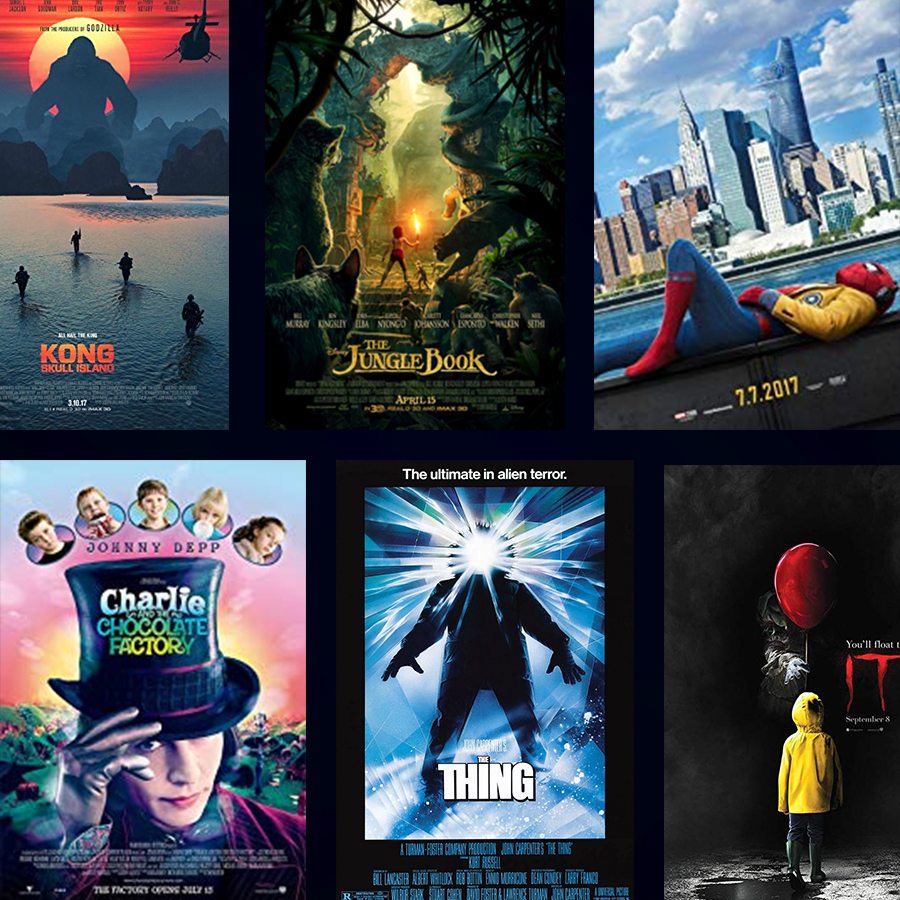Why reboots and remakes are not worth the effort
Recently, reboots and remakes have become more popular forms of movie adaptation, both having to do with creating a movie based off of an already existing film property.
December 8, 2018
Remakes and reboots have been a staple of the movie industry, which is especially true in recent years. Disney has already announced four remakes of their classic movies to be released within the next year, and other classics like The Grudge and Shrek are being remade and rebooted as well. This effect has also been present among many old franchises such as Spiderman, which has been rebooted three times over the past twenty years.
The idea of remaking movies can be very appealing to producers and directors. It allows them to use a beloved movie or franchise and update it to fit more modern standards. For example, Disney’s latest remakes, such as Beauty and the Beast (2017) and The Jungle Book (2016) use computer-generated imagery (CGI) rather than the original hand-drawn animation. Similarly reboots also use a movie franchise, but rather than purely remaking it, it discards the franchise’s past continuity. For example, Christopher Nolan’s Batman Begins removed all of the character’s past history from the Tim Burton series of Batman films, creating a blank slate for which the new story can take place. This can be seen as even more rewarding than a remake, seeing as it gives the director more freedom to create what they want while still being able to gather attention by using a beloved franchise.
That being said, while remakes and reboots do seem like good ideas, in reality, they lack creativity, cause a rift between the original and the current directors, and can become very dated when looking back.
The idea of less creativity as a consequence of remakes doesn’t seem very grievous at first thought, but when viewed through a larger scope this can become very bad for the movie industry in general. Movies depend on the evolution of new ideas, and techniques, but when the same ideas and stories are recycled, it can cause this change to stagnate. When directors choose to remake and reboot past stories the outcome will generally be a more generic counterpart to the original and will rarely bring anything new to the table.
While this tends to happen more often in remakes, reboots can also fall into this trap. When directing a reboot, a lazy director may borrow scenes and storylines from past movies. For example, all Batman reboots have a scene where his parents die. While this can be seen as necessity to the story, it can also come across as lazy and unnecessary, especially when it’s so well-known. On the other hand, Spiderman: Homecoming does a great job of averting this by referencing Peter Parker’s tragic backstory while not directly showing the audience.
One of the biggest challenges when adapting any kind of medium to film is trying to capture the same emotions and feelings that the original creator had in mind. This is especially true because when it comes to recreating classic movies, oftentimes, the original creator may no longer be alive or refuse to collaborate. This issue applies to remakes as well, where directors may be given free rein over their vision of the movie. While an increase in freedom may seem beneficial, this often causes remakes to miss the intended purpose. However, this isn’t the director’s fault. For example, it would be impossible for Tim Burton to know what exactly was going through Mel Stuart’s mind when filming the original Willy Wonka & the Chocolate Factory.
Similarly, there can also be cases where a director tries to replicate the original as close as possible, but that doesn’t guarantee quality either. Psycho (1998) was a near shot-for-shot remake of the the original but is considered by many to be considerably worse.
There is also the fact that many remakes are made only to cash in on the current trends or latest technology, which causes the movie to lose some of its initial charm and results in it becoming dated when compared to their original counterparts. One example is the barrage of “live-action” Disney movies that are being released, and Jungle Book (2016) does a great job of illustrating this problem. While it does a great job of sticking to the original story, it loses much of the original’s emotion and personality as it tends to stick to a more realistic CGI style instead of the original hand-drawn animation.
With many of their new “live action” movies, Disney seems to be trying to create the most realistic and impressive examples of what they can do with CGI, despite not realizing it’s much more difficult to convey a personality through an emotionless depiction of Baloo. Even with the impressive technology, it’s not likely these movies will stand the test of time either. Seeing the way that animation has progressed over time, these movies will likely become irrelevant given ten or more years.
That’s not to say all remakes and reboots are bad, reboots tend to have the upper hand since they don’t directly recreate an already existing property. Even then, remakes like The Thing (1982) show that a remake can improve on the original if the director knows how to handle the source material well. That being said, oftentimes a director won’t put a considerable amount of effort into the reboot, and even if they do it still won’t guarantee a good movie, resulting in an inferior product.
A bad remake or reboot can have a significant effect on a movie’s legacy as well. When a movie is remade unsuccessfully it can leave a negative view on the series, which can even affect how they view the original. This could be even worse for a reboot, since it’s responsible for the future of the franchise.






